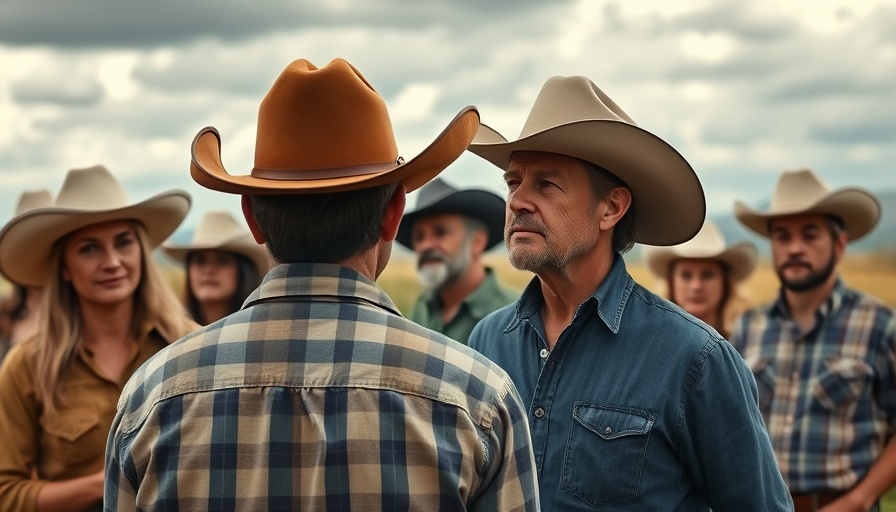
Discovering the Legacy of TCU’s Ranch Management Program
In the heart of Texas, a unique educational venture stands out for its dedication to cultivating agriculture leaders. The Texas Christian University (TCU) Ranch Management Program, now celebrating 68 years, has shaped the futures of over 1,400 graduates worldwide. Located within an unpretentious building on campus, the program aims to blend tradition with modern agricultural practices, empowering students to thrive in the complexities of farming and ranching.
Intensive Training Tailored for Future Farmers
Imagine being part of a rigorous nine-month course that not only challenges your academic understanding but also immerses you into the practical workings of the agricultural world. The TCU Ranch Management Program does just that, guiding students through an extensive application process to ensure that they possess both intellectual and experiential qualifications. Dr. Matthew Garcia, the program's director, emphasizes that excellence in agriculture requires an amalgamation of knowledge, practical skills, and an understanding of the industry’s language.
The Heartbeat of the Program: Community and Collaboration
The camaraderie among the TCU Ranch Management students is palpable. With an average class size of only 36 students, they engage deeply with one another, spending around eight hours a day together, five days a week. This immersive experience fosters a tight-knit community where students support each other while learning in both the classroom and on diverse agricultural sites. Whether they’re dissecting soil compositions or evaluating livestock practices, their collaborative approach nurtures lasting friendships and professional networks.
Real-World Experience: Learning Beyond the Classroom
What truly differentiates the TCU Ranch Management Program from others is its hands-on approach to education. The curriculum merges classroom instruction with practical field trips across Texas to various ranches and farms. Students experience an impressive 5,000 miles of state-wide travel, connecting real-world situations with theoretical knowledge. During their excursions, they analyze different agricultural practices, including the impact of oil extraction, renewable energy sources, and crop systems to understand the multifaceted nature of farming.
Creating Adaptable Agricultural Leaders for Tomorrow
Students are encouraged to embrace a flexible mindset since there are no one-size-fits-all solutions in agriculture. The challenges posed by different ecosystems mean that adaptability is key for modern ranchers and farmers. The faculty, including experts like Kerry Cornelius, Jason Faubion, and Jeff Geider, provide insight that reinforces the necessity of diversifying solutions in agriculture, ensuring students are well-prepared for any situation they may encounter.
Future Trends: A Growing Need for Agricultural Leadership
As the agriculture industry evolves, the demand for knowledgeable leaders grows. TCU's Ranch Management Program stands at the forefront of this movement, equipping graduates with the skills to navigate and innovate within an increasingly complex field. The emphasis on practical application alongside academic learning fosters a generation of professionals who can tackle everything from climate challenges to market fluctuations, and the need for these leaders is an opportunity for aspiring agriculturalists.
Conclusion: Why Today’s Agriculture Needs You
As we look to the future, the importance of education in agriculture is undeniably clear. Programs like TCU’s Ranch Management not only prepare students for careers but also contribute to the sustainability of our food systems and rural economies. If you are passionate about agriculture or are considering a career in this vital field, take the leap and consider TCU’s program as the first step in your journey. Join the ranks of future agricultural leaders making profound impacts in an industry ripe with opportunities.
 Add Element
Add Element  Add Row
Add Row 



 Add Row
Add Row  Add
Add 


Write A Comment